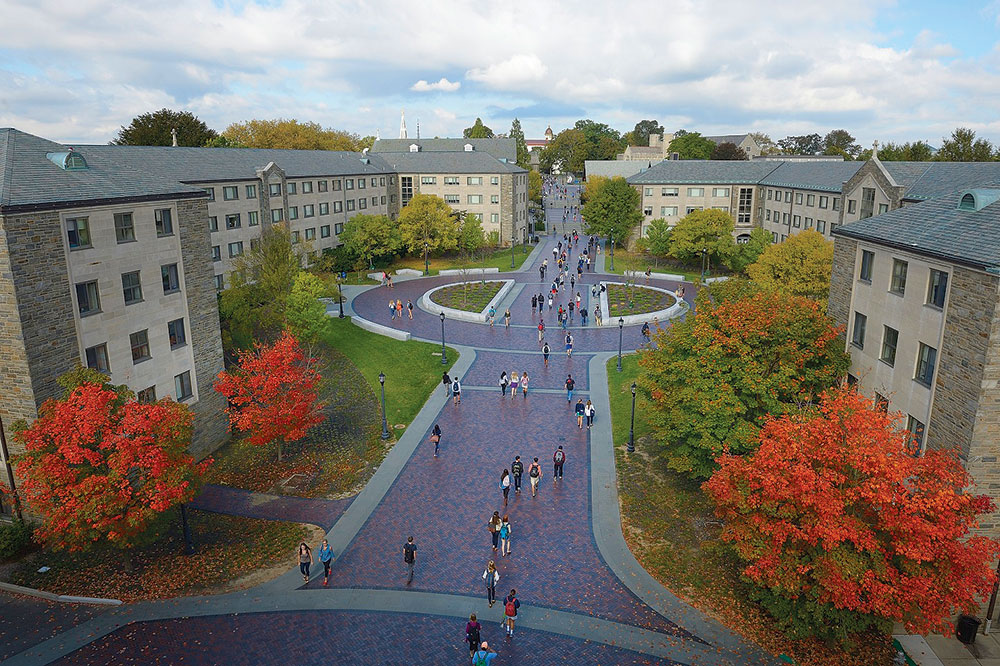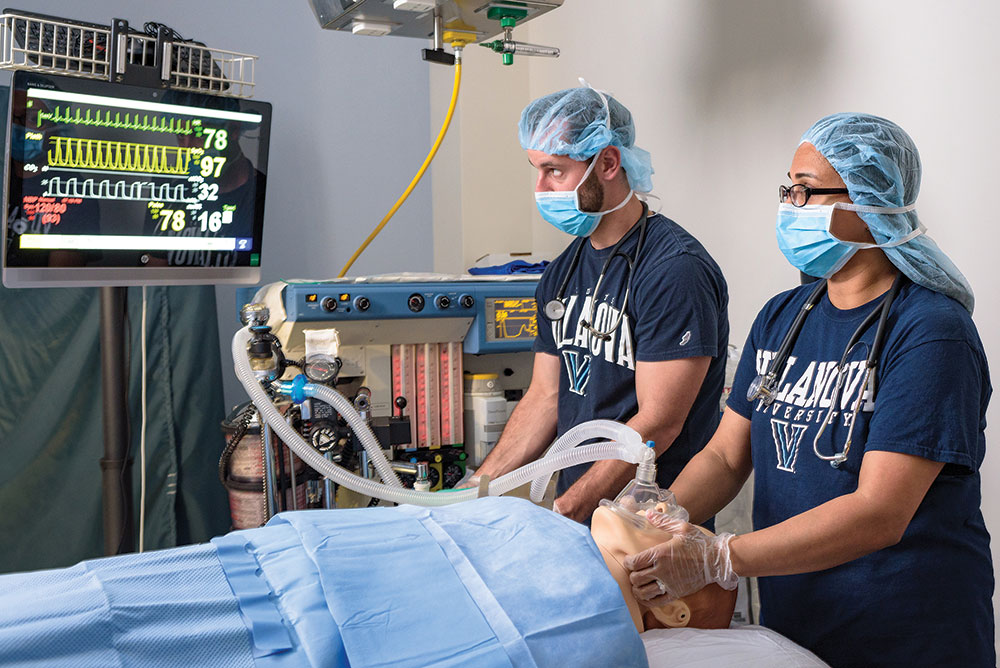Smart Start: How Pennsylvania Prepares Students For the Future
Dual-enrollment programs get Pennsylvania students on the path to college and careers.

Pennsylvania draws talent, but it also grows and retains it on the strength of its standout colleges and universities.>
Each year, Pennsylvania’s nearly 250 public and private higher education institutions award almost 194,000 credentials, including certifications, associate degrees and bachelor’s degrees.>
More than 36,000 students from outside the state come to Pennsylvania each year to attend college. The state ranks sixth for the number of international students it attracts each year.>
Pennsylvania is home to nationally-ranked colleges and universities, including the University of Pennsylvania, Carnegie Mellon University, Lehigh University, Villanova University and the University of Pittsburgh, which are considered among the best in the U.S.
The Penn State University system is a network of 24 campuses across the state, including the flagship in State College. The 14 universities, which are part of Pennsylvania’s State System of Higher Education (PASHE), enroll more than 100,000 degree-seeking students and thousands more in certificate and other career-development programs.
Serving nearly 300,000 students each year, the state’s network of 14 community colleges is the largest provider of public post-secondary education and workforce training in Pennsylvania.
The colleges work closely with business, industry and local schools on programs that encourage talent development, including apprenticeships and dual enrollment.
Dual enrollment allows high school students to enroll at a local community college and receive college credit while still in high school. In the past 10 years, dual enrollment at Pennsylvania community colleges has grown by more than 8%.

In This Article
A Step Up to the Workforce
Pennsylvania Highlands Community College in Johnstown offers dual enrollment courses to some 50 high schools. Students have access to college courses – which are taught on the high school campuses by approved high school faculty who teach according to the Penn Highlands’ course syllabi – at a discounted tuition rate. Lower-income students can also apply for the Jacob Fend Foundation’s local grant money to assist with dual-enrollment tuition.
“Giving students access to an affordable education, locally, at an early age can get them thinking about their futures. When students learn locally and remain in the area for their education and careers, the local economy benefits,” says Kay-Leigh Malzi, associate dean of school partnerships for Pennsylvania Highlands Community College.
Education, Careers & Opportunity
Pennsylvania’s Real Smart Robotics
Pennsylvania’s long legacy in robotics drives artificial intelligence innovation.
The Penn Highlands Academy program encourages students to take 28 dual-enrollment credits at their high school before enrolling in a Penn Highlands program. Penn Highlands also offers an Associate in High School Program, through which students begin taking a mix of dual enrollment courses and traditional college courses in ninth grade.
“This gives them a step up when they enter their bachelor’s degree program, allowing them to finish in as little as two years,” Malzi says.

Success Starts With Access
Since 2015, Luzerne County Community College (LCCC) in Nanticoke has seen a 20% increase in enrollment in its Early College program, allowing high school students to earn college credits by taking college-level courses either at their high school or on Luzerne’s campus.
“We believe education starts with access,” says Rosana Reyes, LCCC vice president of enrollment management and student affairs. “Our program gives opportunity to students who have struggled traditionally in enrolling or persisting in a post-secondary setting. Our goal is to give our students from all backgrounds an opportunity to participate in the program.”
Reyes says Early College students also have access to all the college’s support services, from the library and tutoring services to the writing center, accessibility services for those with learning difficulties, advisers and career planning resources. Early College courses are offered at a reduced rate of only $40 per credit hour, but the college also provides scholarships for students for whom the reduced tuition is still out of reach.
“Some are even completing an associate degree before finishing high school. And that, I think, is amazing …,” Reyes says.

Pathway Providers
Butler Community College’s College Within the High School program is also experiencing a growth spurt. In fall 2020, the program featured 59 transferable college-level courses in subjects such as anatomy, psychology, economics and statistics.
“We have some that say, ‘College isn’t for me; I’m going to go straight to the workforce,’ but they’ve gained some skills,” says Erin Cioffi, assistant director of high school programming for Butler Community College. “We have others that say, ‘I didn’t think I could do this, but it makes me more excited to have these college credits under my belt to get to a four-year institution or earn my associate degree.'”

Ahead of the Game
Montgomery County Community College gives high schoolers a boost toward higher education.
The dual-enrollment program at Montgomery County Community College (MCCC) allows students – starting as young as age 15 – to take college courses and earn transferable college credits while simultaneously meeting their high school requirements.
Students in the dual-enrollment program receive access to MCCC’s resources, including academic advising, online and in-person tutoring, career services and even health and wellness. Students may also participate in student clubs, organizations, activities and events to enjoy the whole college experience.
“Dual enrollment provides a substantial advantage for students who can minimize or even eliminate tuition debt with MCCC’s affordable tuition,” says Philip Needles, vice president of student services. “Annual tuition for a full-time student at Montgomery County Community College is nearly half the national average of tuition at a public four-year institution.”
In fact, Needles says, the college has kept tuition rates the same for four consecutive years. In addition to financial savings, students who are dually enrolled can get a jumpstart on their college education. Such was the case for MCCC’s youngest 2020 graduate, Delila Matara, who, at 18 years old, graduated from Lower Moreland High School in June, received her associate degree from MCCC in October and is currently enrolled as a junior at Temple University.
“I wanted to get ahead of the game,” Matara says. “I like a challenge. School has always given me a purpose. At Temple, I’m considered a junior but I’m only 18 years old. It’s a weird situation … but I love surrounding myself with people more educated than me.”
In addition to the dual enrollment program, MCCC’s Blue Bell campus and a satellite campus in Pottstown partner with more than 25 school districts for its Early College Special Opportunity program, allowing high school students to earn up to six credits each semester through online learning.
“This program saves money for families, helps students earn college credits, and helps prepare students for the transition to college and the academic rigor of college coursework,” Needles says.
If you’d like to learn more about the Pennsylvania area, check out the latest edition of Pennsylvania: Work Smart, Live Happy.



